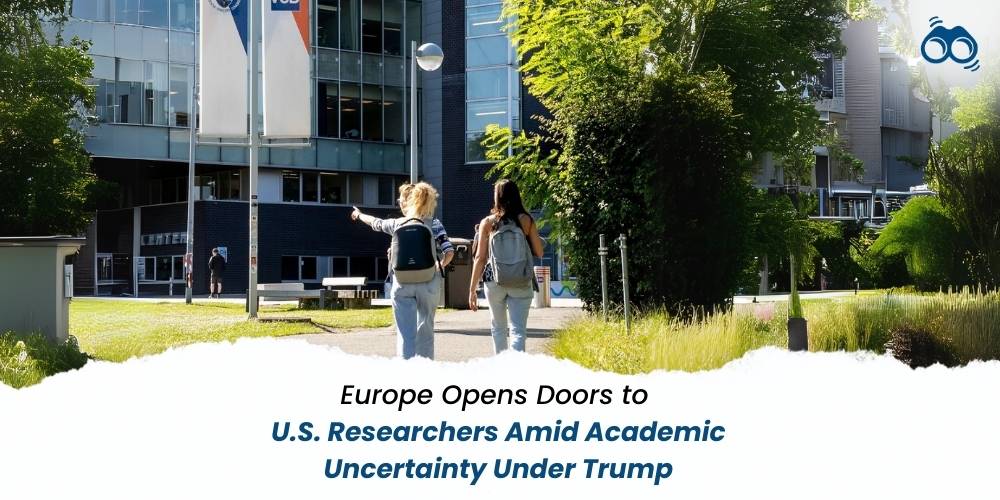European Nations Position Themselves as Safe Havens for International Academia
Norway, France, and Spain Launch Major Initiatives to Recruit Global Researchers
In recent years, European governments have increasingly prioritised efforts to enhance their universities' capacity to attract international researchers, amid growing concerns over a potential exodus of scholars from the United States. As part of this broader strategy, Norway’s Ministry of Education announced on April 23 a $9.6 million initiative, developed by the Research Council of Norway, aimed at supporting the recruitment of experienced researchers from abroad. This move underscores Norway’s commitment to strengthening its global research profile and academic competitiveness.
Although the program is open to researchers worldwide, Norway's Research and Higher Education Minister, Sigrun Aasland, expressed a particular interest in attracting U.S.-based scholars. She emphasised that academic freedom in the United States is increasingly under pressure, creating an environment of uncertainty for many researchers in what has traditionally been regarded as the world’s leading knowledge hub.
Furthermore, Aasland highlighted that Norway had engaged in close dialogue with local knowledge communities and other Nordic countries in response to these developments. Recognising the urgency of the situation, she instructed the Research Council to prioritise initiatives that could be swiftly implemented. Accordingly, Mari Sundli Tveit, CEO of the Research Council, announced that the first call for proposals would be launched in May, with a focus on key fields such as climate, health, energy, and artificial intelligence.
Similarly, France has taken significant steps to bolster its scientific and academic appeal. Last week, the French Ministry of Higher Education and Research introduced the Choose France for Science platform, operated by the French National Research Agency. This platform enables universities and research institutes to submit projects aimed at hosting international researchers who are willing to relocate to Europe, with the possibility of receiving up to 50% in state co-funding for research projects in areas such as health, climate, and artificial intelligence. French Education Minister Élisabeth Borne remarked that science and research are currently facing unprecedented global challenges, and France must respond by actively welcoming and supporting researchers. This initiative complements ongoing efforts by individual French universities to attract U.S.-based scholars.
For instance, the University of Toulouse is targeting recruitment in fields such as health, climate change, and energy, while Paris-Saclay University plans to launch Ph.D. contracts and fund research stays of varying durations for American scholars. Additionally, Aix-Marseille University announced its intention to host approximately 15 American academics through its Safe Place for Science program. The university reported receiving nearly 300 applications, primarily from seasoned professionals affiliated with prestigious institutions such as Johns Hopkins, the University of Pennsylvania, Columbia, Yale, and Stanford.
Meanwhile, Spain is also advancing its international recruitment agenda. Science Minister Diana Morant recently unveiled the third round of the ATRAE program, backed by a $153 million budget and set to run from 2025 to 2027. Designed to attract top scientific talent to Spain, the program focuses on research areas with significant social impact, including climate change, artificial intelligence, and space technologies.
It offers scholars an average of $1.13 million per project, with an additional $226,000 for applicants based in the United States. Minister Morant emphasized that Spain not only offers an improved environment for researchers already residing in the country but also presents an appealing and productive scientific ecosystem for elite international researchers. Collectively, these initiatives reflect Europe’s growing determination to become a global hub for scientific excellence by providing a stable, supportive, and attractive environment for international researchers.
Editor’s Note:
As global academic landscapes continue to evolve, recent initiatives by European governments highlight a strategic push to strengthen their research environments and attract international talent. These efforts, particularly in Norway, France, and Spain, demonstrate a coordinated response to the shifting dynamics of academic freedom and research opportunities, especially for scholars based in the United States. The latest measures being implemented to position Europe as a leading destination for scientific and academic excellence are commendable. By investing in research infrastructure and offering competitive funding, these countries aim to foster innovation while addressing global challenges through collaborative, world-class research.
As per Skoobuzz, Europe’s efforts signal more than investment; they reflect a commitment to academic freedom and innovation. As the U.S. faces growing challenges, Europe is emerging as a new hope for researchers, potentially shifting the global centre of scientific excellence.














0 Comments (Please Login To Continue)